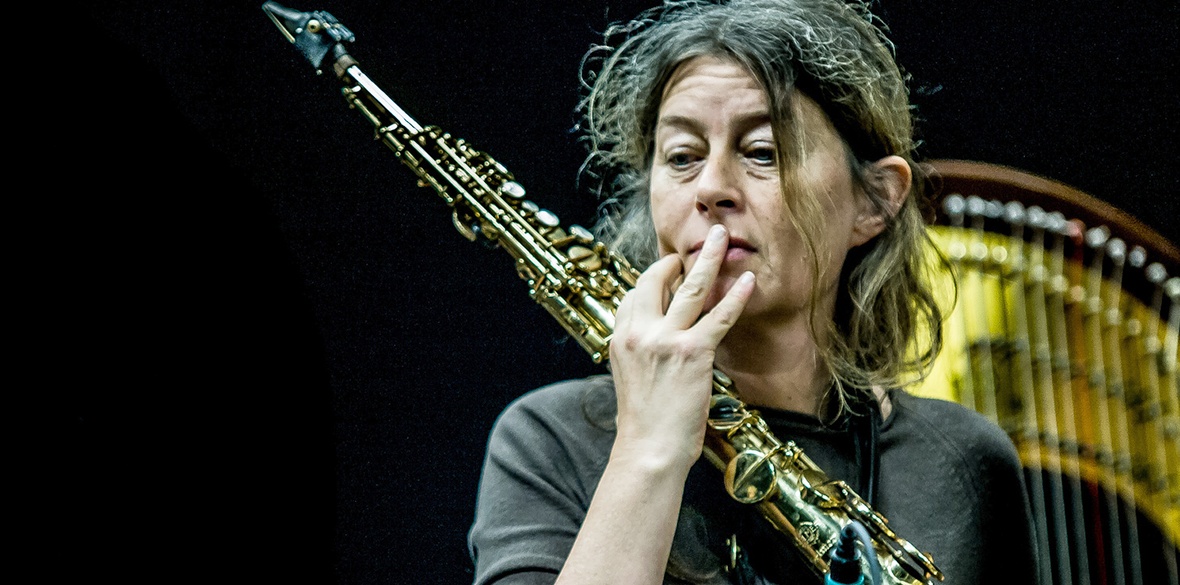This is the last article you can read this month
You can read more article this month
You can read more articles this month
Sorry your limit is up for this month
Reset on:
Please help support the Morning Star by subscribing here
THE father of Copenhagen-born alto saxophonist Lotte Anker was a forester: “I grew up in different places in the countryside,” she tells me.
Perhaps that is why from her very first notes on her album Floating Islands, her sound is like human birdsong, her improvisations full of flying melody.
Born in 1958, as a girl she “listened to classics and rock from Lennon to Hendrix to Zappa.”
She learned piano and flute, and came to the saxophone when she was 21, her first inspirations being Coltrane, Wayne Shorter and John Tchicai — the Congolese-Danish saxophonist who played on Coltrane’s 1965 album, Ascension.
He became her teacher when she moved back to Copenhagen in 1977.
“I played on and off with him through the years, until he died in 2012.”
Her musical journey took her inexorably to free improvisation.
“I love the sense of freedom and how powerful it can be creating music in the now with other musicians. It becomes a place where both my love for contemporary music and free/experimental jazz can meet,” she says.
The Floating Islands trio, with pianist Craig Taborn and drummer Gerald Cleaver, both from the US, “began in 2003 when I was playing some trio gigs with Gerald and pianist Marilyn Crispell.
“Craig came on a tour of Europe which Marilyn couldn’t do. After the tour it was clear to all of us: this is a new trio!”
Floating Islands is a live recording from the 2008 Copenhagen Jazz Festival.
“It was one of those concerts where the music just takes over and opens up a space with no limits. It’s much to do with the trio’s energy, listening and trust.”
The sense that these performers are also the most assiduous listeners is profound on this record.
So many times their listening means they pick up and continue the lines and narratives begun and constructed by each other while simultaneously inventing independent beauty on their own instruments.
Listen to Backwards River or Even Today I am Still Arriving for affirmation of this.
I ask Lotte how much resistance to the established cultural forms is to be found in such music?
“It expresses a cultural and political resistance, even though it’s more subtle and not so related to political movements as in the ’60s and ’70s,” she replies.
“It carries a much wider spectrum of musical forms.
“The resistance is expressed in the way the musicians play and explore the music, with true self-reliance and self-definition in opposition to the increasing corporate and arts business.
“It’s much more diverse and spreads beyond the Western world. I see a growing interest among younger musicians and audiences to explore sound and become part of open and inclusive musical communities.
“It’s a worldwide network and listeners too are a part of that.”
Just listen to the discovering global sounds and stretching beauty of Floating Islands with the birds flying out of Lotte’s horn, and you will see with your ears what she means.











